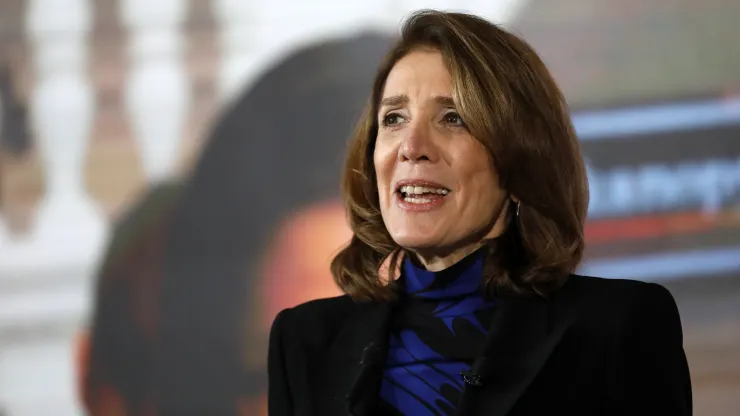Google executive turnover and role changes come as the company searches for new identity

Key members of Google’s old guard have been shifting roles or leaving the company as it searches for its new identity.
The changes include high-profile executives such as finance chief Ruth Porat, YouTube CEO Susan Wojcicki, and employee No. 8, Urs Hölzle. Others say they have left their roles to pursue opportunities in artificial intelligence, while others have left to take on a new challenge.
She announced in February she was stepping down from the Google-owned platform that grew to be the world’s most popular video service after nine years. Since Sergey Brin and Larry Page used her garage as their first office, she had been at Google for more than 25 years.
Her advisory role at Google will continue, but she wants to “start a new chapter.”
It wasn’t just Wojcicki who left YouTube. At the beginning of the year, Robert Kyncl stepped down as chief business officer to become president of Warner Music Group.
After 17 years at Alphabet, CapitalG founder and longtime Google employee David Lawee stepped down, saying he wanted to explore new interests and spend more time with his family.
In July, CNBC reported that Hölzle, who has overseen Google’s technical infrastructure for 24 years and was its eighth employee, was stepping back from management. As an “individual contributor,” Hölzle will work independently and will no longer manage employees.
Porat announced in July that she will step down as Alphabet’s chief financial officer after eight years and take on a new role as president and chief investment officer. Having previously served as Morgan Stanley’s CFO, Porat said she wanted a new challenge when asked about her move.
“Porat will also engage with policymakers around issues such as employment, economic development, competitiveness, and infrastructure expansion,” the company said.
Google spokesperson Courtenay Mencini said, “We have a steady and experienced leadership team, many of whom have been with the company for many years.” As well as having a strong bench of leaders at Google, we can easily transition when people who have had long and successful careers here decide to pursue new opportunities within or outside the company.
Searching for itself in an AI-first world
While Google searches for replacements for executives such as Porat, it’s also trying to find its own identity.
OpenAI launched ChatGPT last fall, catching the company off guard and putting it in a position that threatened its core business.
In the future, how long will users continue to use search engines if AI-powered chatbots can answer all their questions? With little to show externally, Sundar Pichai had been talking up the company’s “AI-first” strategy since 2016.
CNBC reported that Google executives admitted in June that users are not satisfied with the search experience. During the meeting, Prabhakar Raghavan, engineering VP HJ Kim, and Pichai pledged to do a better job with employees, while Pichai noted that Google is still the most trusted search engine in the world.
The New York Times reported in May that Geoffrey Hinton, one of the most respected voices in artificial intelligence, was leaving the company after a decade in order to warn the world about the potential threat of artificial intelligence, which will arrive sooner than he thought.
A few weeks earlier, Google promoted Demis Hassabis, the CEO of its DeepMind subsidiary, to lead AI for the entire company in a reorganization of its AI teams. A former McKinsey executive, James Manyika, was promoted to Google’s senior vice president of technology and society.
As part of the change, Jeff Dean, Google’s AI head since 1999, has been promoted to chief scientist. Although the company called it a promotion, he was effectively demoted to being a small individual contributor overseeing Gemini, the company’s largest language model.
Despite a slowing economy and investor calls for reductions in spending, the company is cutting costs, also a rarity, while the core search product faces a changing user behavior, ad pullbacks, and an AI boom that requires increased investment.
Several federal lawsuits are also pending against Google, including an antitrust trial set to start in September, alleging it illegally controlled the distribution of its search results.
More like other big companies, some employees say
The perception of the company among employees has also changed in recent years.
Google is still one of the top places to work with competitive perks, but it has become more bureaucratic.
In a Medium post that went viral earlier this year, Praveen Seshadri argued that this perception shift has created a “fragile moment” for Google amid pressure from OpenAI and Microsoft.
Seshadri wrote in his blog post that Google’s increasing bureaucracy had led to the deterioration of a once-great company.
They are trapped in a maze of approvals, launch processes, legal reviews, performance reviews, executive reviews, documents, meetings, bug reports, triage, OKRs, H1 plans followed by H2 plans, all-hands summits, and inevitable reorganizations.
